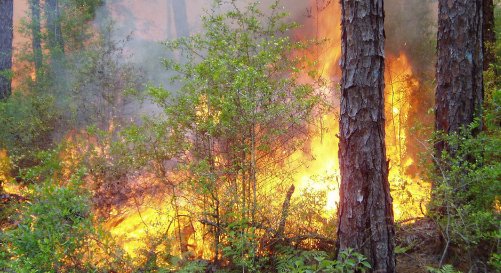There are lots of things not to like about the climate legislation passed by the House, but it may be the best we can do at this time and it might be possible to improve it later.

For me, it was interesting to see how lobbying worked, IMO sometimes in good ways. For example, the bill as it stands now guarantees that forest offset market opportunities will be created for family forest owners in America. A few days ago, it looked like this would not happen and/or the breaks would only be available to foreign offsets.
The USDA will have the lead role in implementing the offset markets for forests. Why is this important? The USDA is staffed by people who are close to the earth and have a practical knowledge of what works. I trust these guys more than average regulators.
The bill ensures that “early actors,” family forest owners, who have already taken steps to manage their properties responsibly, will be rewarded for their carbon-positive activities. This is important to me personally. I have been working hard last couple of years to make my forests more sustainable (and have written about it). It would be unfair for our less responsible compatriots to be able to profit from their profligacy.
The bill will allow all biomass from family forests to be used to meet the Renewable Electricity and Renewable Fuels Standards. The original definition in the Waxman-Markey bill and the 2007 Energy bill didn’t do that.
Finally, the bill allows a range of green building standards, including those that allow the use of wood from American Tree Farm System® certified forests. We had some trouble with LEEDS certification. Our tree farm would was not included in some of the initial standards.
That is why we need lobbyists. If government is going to make far reaching rules, you need someone around to educate the legislators. Frankly, I would not have known that the things above were even threatened. Some make a big difference.
The LEED thing is a good case in point. LEED are so-called “green buildings.” Unfortunately, they didn’t take in the full life cycle of a product. Concrete, for example, is a good building material in its final form, but it creates a lot of pollution and emits great amounts of CO2 during its production. Green buildings sound like a good idea, and our political representatives might vote for it, but the details are important.
Most people would just like to mind their own business. Unfortunately, government doesn’t always give us this option and regulations can be used as offensive weapons. We need lobbyists to protect ourselves from the active-aggression of those who will use government to further their own interests at the expense of ours.
I would just like to grow my trees, but all sorts of regulations impact my choices. Some of the regulations are made by ignorant people. For example, lots of people oppose controlled burning and would like to outlaw it. They don’t understand the ecological necessity.
The picture up top, BTW, shows a good thing. It is a controlled burn that will make the forest ecosystem healthier. It is good for the trees and good for wildlife. It will make the trees grow faster and sequester MORE carbon. That is not immediately apparent, is it? You can see how the practice might be outlawed. That is why I am glad we have lobbyists to look out for us.
Please refer to my original source at this link.
